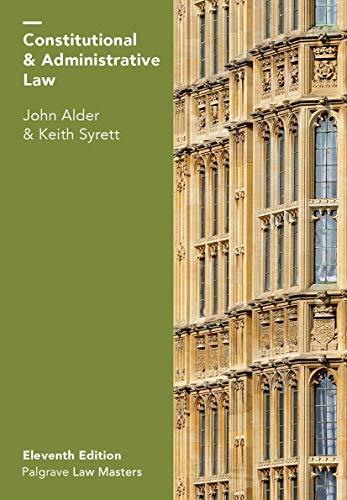Question
PART 1: 1. According to the law in actionlegal perspective,criminal procedure is a dynamic process often referred to as the criminal justice funnel,in which almost
PART 1:
1. According to the "law in action"legal perspective,criminal procedure is a dynamic process often referred to as the "criminal justice funnel,"in which almost all cases enter the criminal justice system at the top of the funnel, but many are eliminated along the way during their move through the legal system (a process called "case attrition")with only a few actually making it to trial, and even less seeing conviction that results in prison sentencing. List three primary reasons for case attrition, and whether or not this is a pro or con to our legal system?
PART 2:
Based on the USSC case of Menuel v City of Atlanta, answer the following questions
1.Courts have held that the Fourth Amendment does not require police officers to choose the least intrusive alternative, only a reasonable one. Should less intrusive means in use-of-force cases be required by law?
2. In this USSC case, the Court determined aw enforcement officers are not required by the Fourth Amendment to use less intrusive means when confronted with a situation in which deadly force could justifiably be used. In their decision, the standard of "reasonableness" is the measure by which officers are held liable or not. Should "reasonableness" be the sole standard by which deadly force decisions are made, or should there be another method with which to justify the use of deadly force?
3. Accordingly, because of the case law on the specific issue of less intrusive means, perhaps it would be prudent to evaluate departmental policies and training in light of the actual standards, duties and obligations imposed by law?
4. Should police department's use-of-force policy require officers to use certain types of force only as a last resort? What would the legal basis for this? What would the effect be of such a self-imposed burden on a use-of-force case in your jurisdiction?
5. What steps should police departments take to train officers with respect to applying the concept of reasonableness in use-of-force training scenarios?
PART 3:
1. Many actors within the criminal justice system exercise the concept of discretion. Explain the process of discretion used throughout the criminal justice system. How does discretion differ among criminal justice actors, such as judges, police officers, prosecuting attorneys, court officials, and so on? Why do we allow the use of discretion within our criminal justice system?
Step by Step Solution
There are 3 Steps involved in it
Step: 1

Get Instant Access to Expert-Tailored Solutions
See step-by-step solutions with expert insights and AI powered tools for academic success
Step: 2

Step: 3

Ace Your Homework with AI
Get the answers you need in no time with our AI-driven, step-by-step assistance
Get Started


